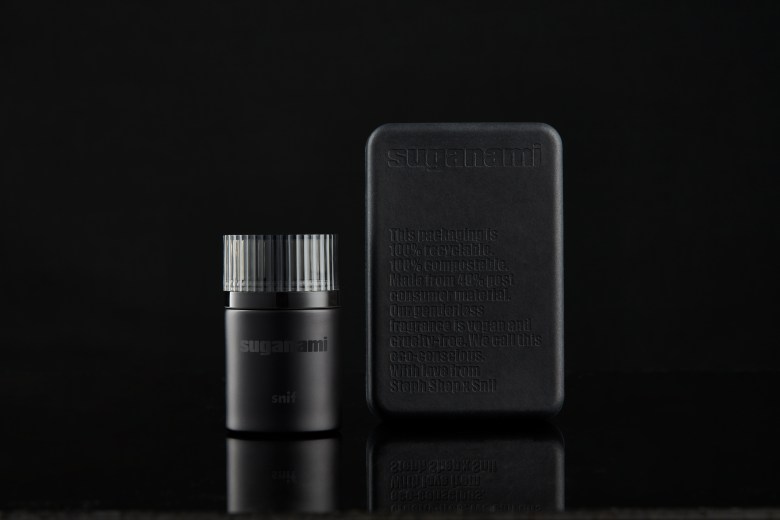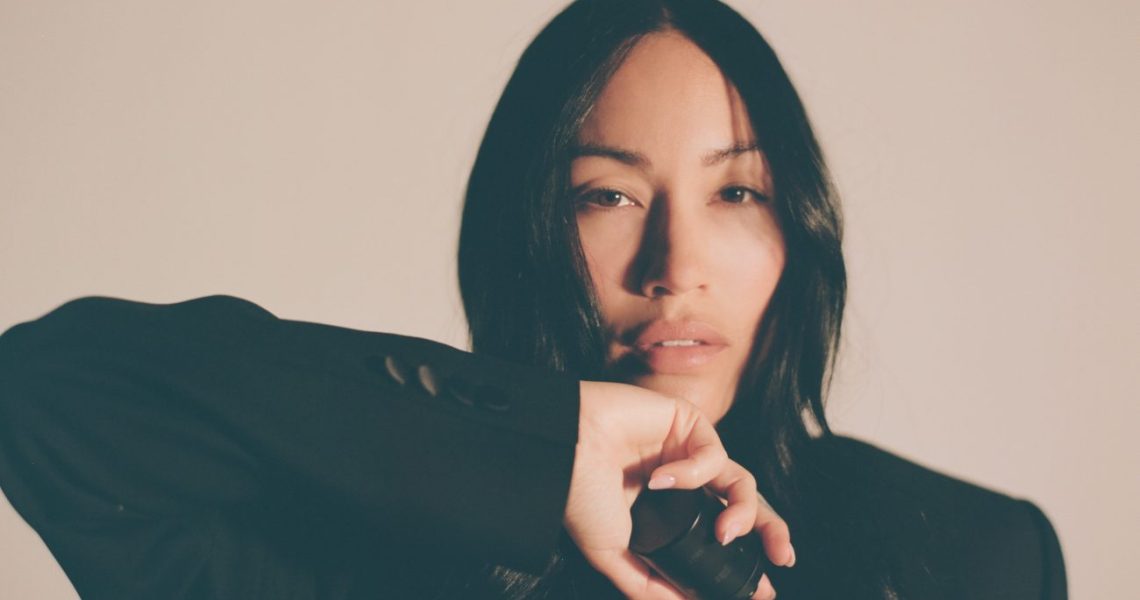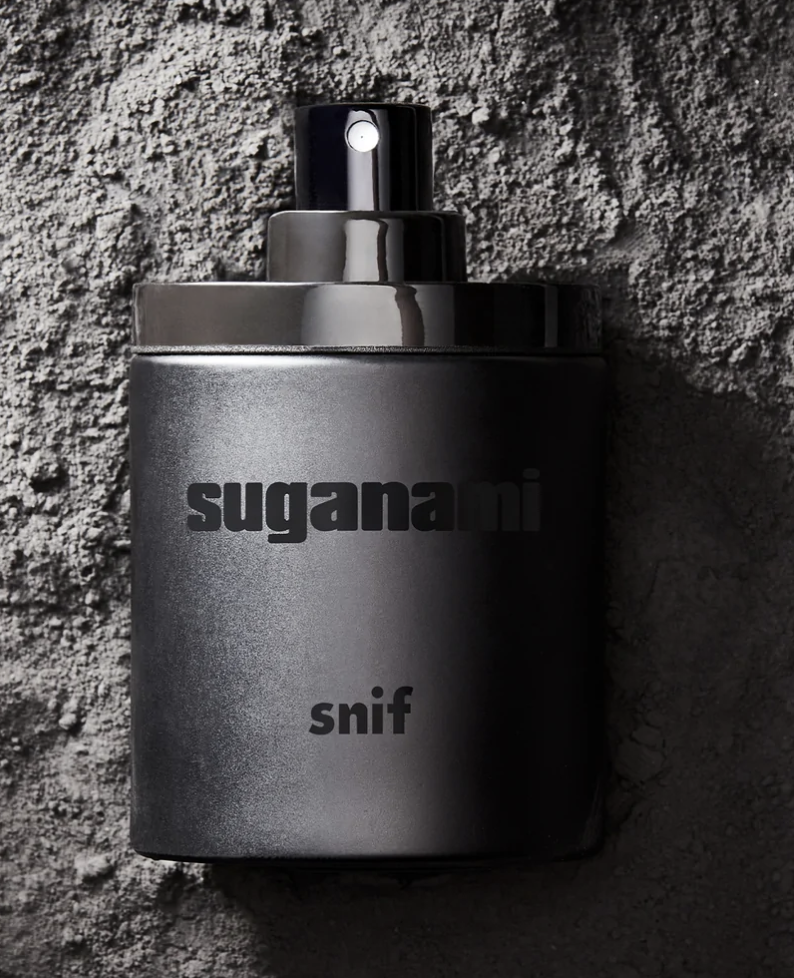All products featured on Glossy Pop are independently selected by our editorial team. However, when you buy something through our retail links, we may earn an affiliate commission.
You might know Stephanie Suganami Shepherd (better known as Steph Shep, 1.8 million Instagram followers) vis-a-vis her Kim Kardashian association — she was once Kardashian’s assistant. But in recent years, she’s made a name for herself as a multi-hyphenate in her own right.
In 2019, Shepherd founded the nonprofit Future Earth, a “climate club” that provides information on the climate crisis to its 383,000 Instagram followers. And in April, she became the chief impact officer at body-care brand Plus, which makes biodegradable body wash. However, her latest project, a fragrance in collaboration with Gen Z-forward fragrance brand Snif puts her squarely in the center of the beauty world. There happens to be a Kardashian connection there, too; Snif co-founder Phil Riportella is married to Simon Huck, best friend of the famous family. Called Suganami, the fragrance references Shepherd’s family name.
“One of our favorite things at Snif is launching cool collaborations with people and brands we love,” said Snif co-founder Bryan Edwards, noting that this is Snif’s fourth collaboration.
Creating the fragrance was a seamless process for Shepherd and Snif in that she knew exactly what moment she wanted to capture. “I specifically wanted to focus on a time of my life in my mid-20s when I was going to Paris Fashion Week all the time, and I had this big group of friends. It was before social media really had a chokehold on everything that everyone does,” she said. “We were able to move more freely and explore and stay out late. There was just more ease, a carefree energy about at all. I really treasure that time.”
So what did that time before Instagram smell like? “The smell of smoke, the guys we would hang out with and the stores we would go into,” Shepherd said. She added that she wanted something that was “earthy, chic and sophisticated, but felt very grounded.” On its website, Snif describes the resulting fragrance as genderless, and comprised of “angelica seeds (peppery with a green side), coriander, iris, rose, cypress, myrrh (warm and earthy), amber, cedarwood and creamy musks.”

Ad position: web_incontent_pos1
For Snif’s part, Shepherd pushed the brand to take its own sustainability initiatives to a new height. “Collaborations push us to try things we’ve never done before. For Suganami, Steph pushed us to be more sustainable with 100% compostable packaging and helped us design an amazing scent unlike any other,” Edwards said.
“I love fragrance as a part of the beauty routine as a whole. It’s the cherry on top of getting ready — the last thing everyone does to seal the look,” Shepherd said.
Shepherd said she holds on to the fragrances she used to wear — including Hermès Eau des Merveilles, Dior J’adore and Michael Michael Kors — as they represent past chapters of her life. “I truly chronicle my life by fragrance,” she said, “When I smell a fragrance that I used to wear, I’m like, ‘Oh yeah, that was this time.’ Sometimes I like to smell them and be like, ‘That’s so funny. I feel like I’m 20 again,'” she said, laughing.
Being that Shepherd is such a staunch advocate for the environment, it may seem contradictory for her to bring another thing into the world. But she acknowledged that no one person can be a perfect paragon of sustainability.
Ad position: web_incontent_pos2
“I’ve thought about this every single day of my life for the past four years, probably,” Shepherd said. “Obviously, the most sustainable thing is to not launch product, to not buy more. I always get asked the question, ‘What’s the most sustainable tip you can give someone?’ and I’m like, ‘Shop less.’ We’re very much in this era of overconsumption and consumerism that has just got a chokehold on society — we need the new thing. I am such a victim of it. I’m never going to pretend that I am the picture of perfect sustainability. I’m not. I try my best I advocate for solutions and better alternatives.”
On the other hand, we don’t want to get to a place where “we’re stifling the creatives and not being innovative, not creating art or not creating products that actually benefit each other’s lives and make people feel good,” she said. “That’s still important.”
Further, she added, she has learned and observed from studying the climate crisis about how the blame is so often unfairly shifted to the consumer. “Take recycling: It’s our responsibility as the consumer, when really — why don’t half of these companies stop making products that are going to just live in landfills for years and years and years to come? There needs to be a shift in responsibility, because there’s a handful of corporations that are [the ones] affecting the climate crisis and that are contributing to the climate crisis [the most].”
These questions are part of why she hasn’t yet started a brand of her own, she said. “I really am trying to prioritize working with brands that have a sustainable ethos, and trying to fit in and be a full-time advocate for those brands. Then maybe I don’t have to start my own.”





